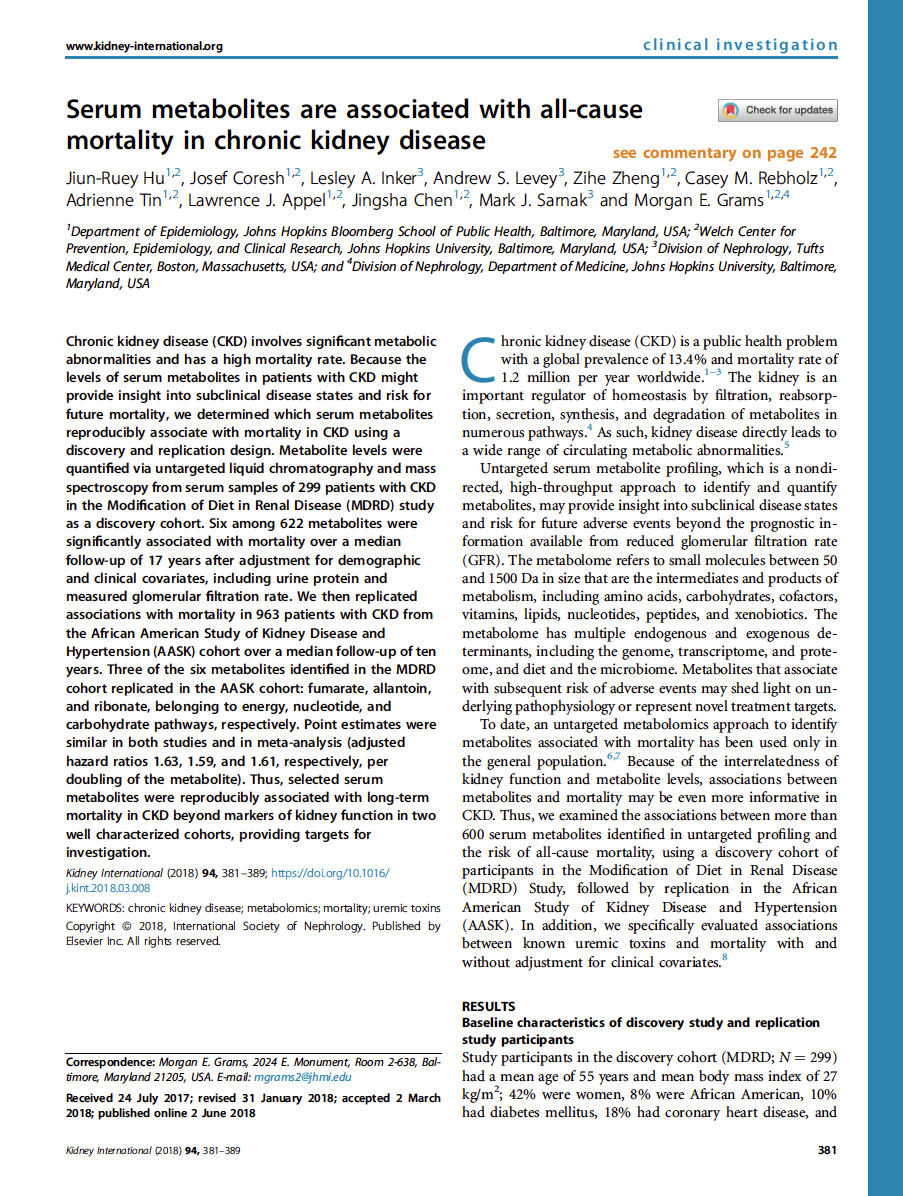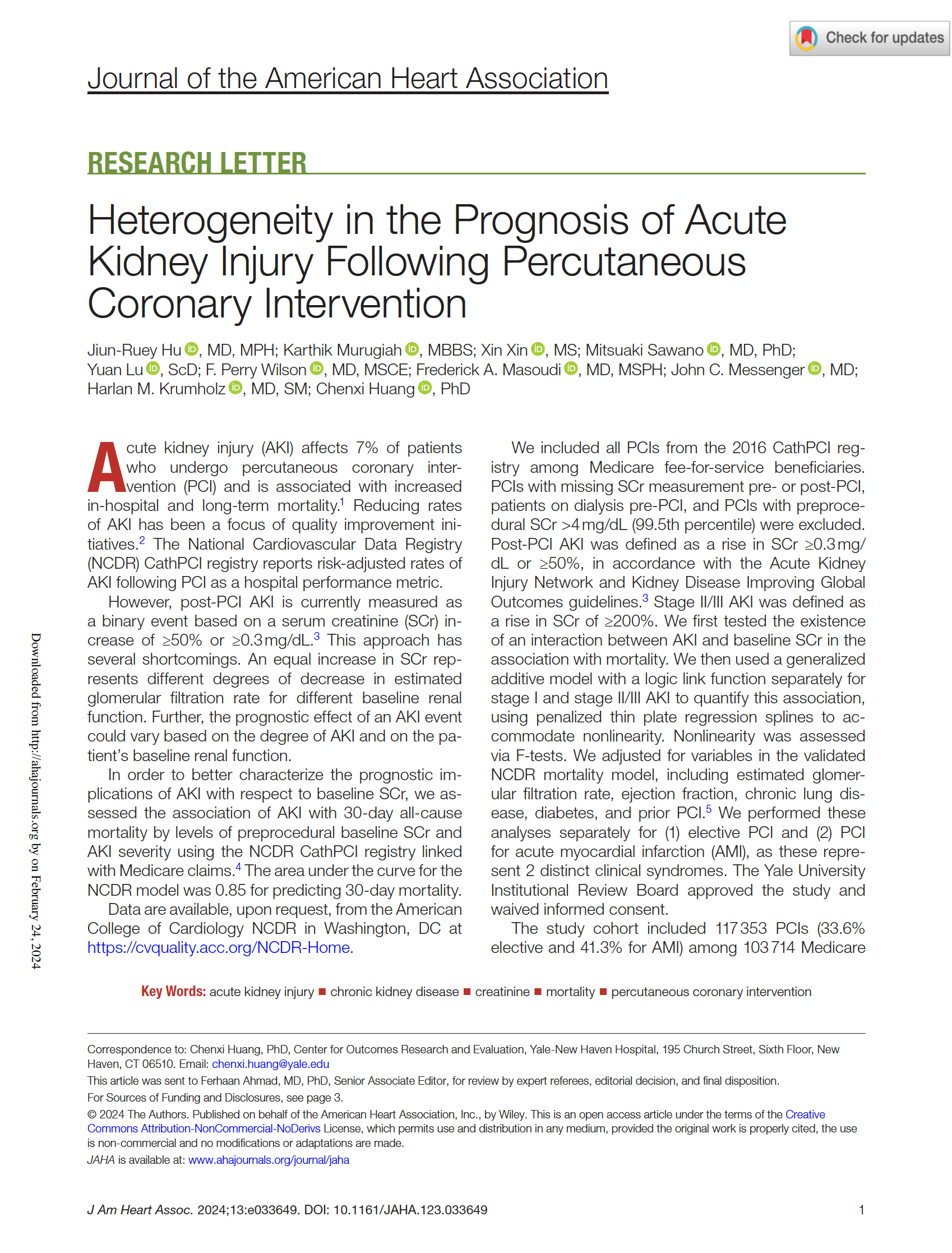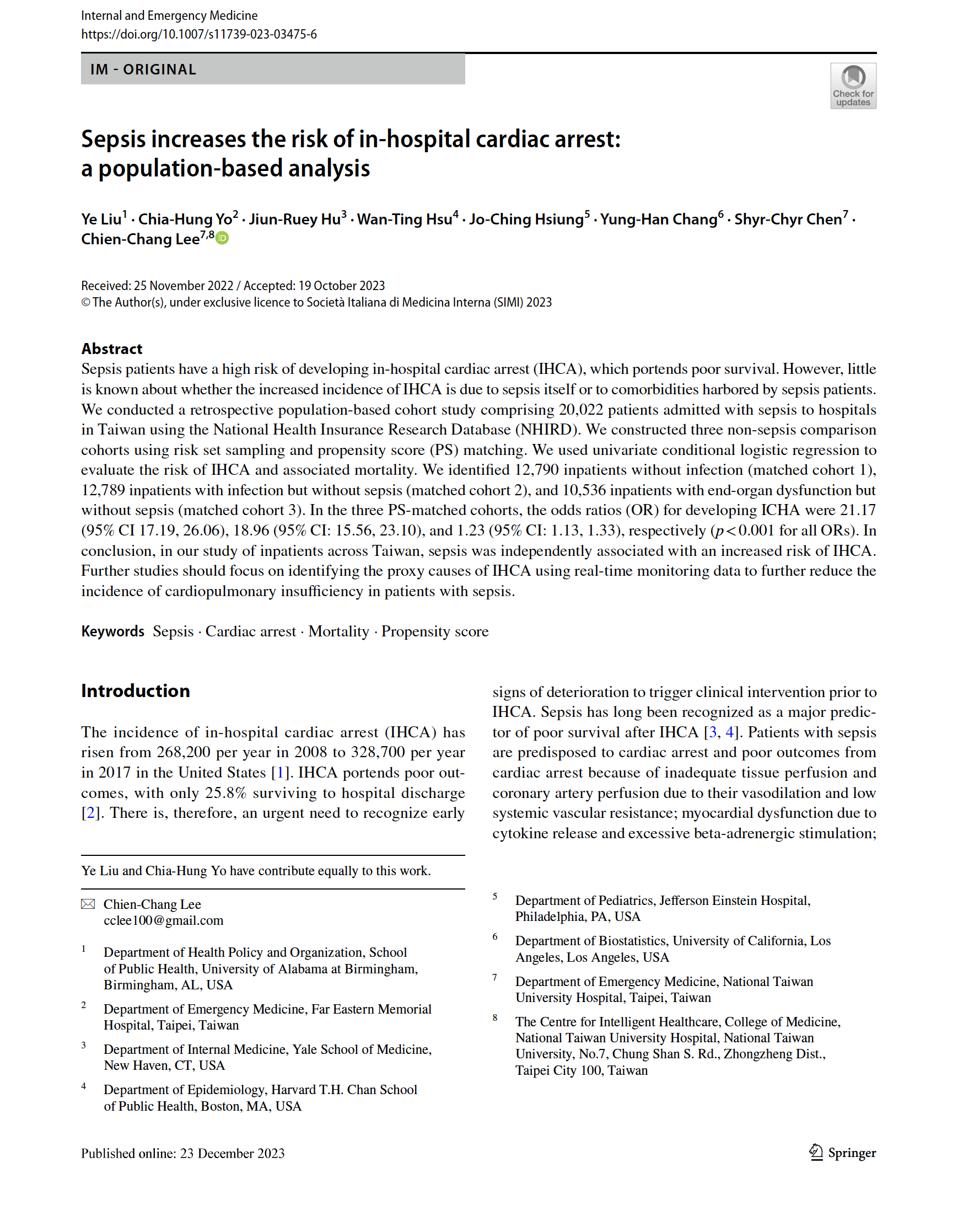📝 Abstract
Chronic kidney disease (CKD) involves significant metabolic abnormalities and has a high mortality rate. Because the levels of serum metabolites in patients with CKD might provide insight into subclinical disease states and risk for future mortality, we determined which serum metabolites reproducibly associate with mortality in CKD using a discovery and replication design. Metabolite levels were quantified via untargeted liquid chromatography and mass spectroscopy from serum samples of 299 patients with CKD in the Modification of Diet in Renal Disease (MDRD) study as a discovery cohort. Six among 622 metabolites were significantly associated with mortality over a median follow-up of 17 years after adjustment for demographic and clinical covariates, including urine protein and measured glomerular filtration rate. We then replicated associations with mortality in 963 patients with CKD from the African American Study of Kidney Disease and Hypertension (AASK) cohort over a median follow-up of ten years. Three of the six metabolites identified in the MDRD cohort replicated in the AASK cohort: fumarate, allantoin, and ribonate, belonging to energy, nucleotide, and carbohydrate pathways, respectively. Point estimates were similar in both studies and in meta-analysis (adjusted hazard ratios 1.63, 1.59, and 1.61, respectively, per doubling of the metabolite). Thus, selected serum metabolites were reproducibly associated with long-term mortality in CKD beyond markers of kidney function in two well characterized cohorts, providing targets for investigation.


